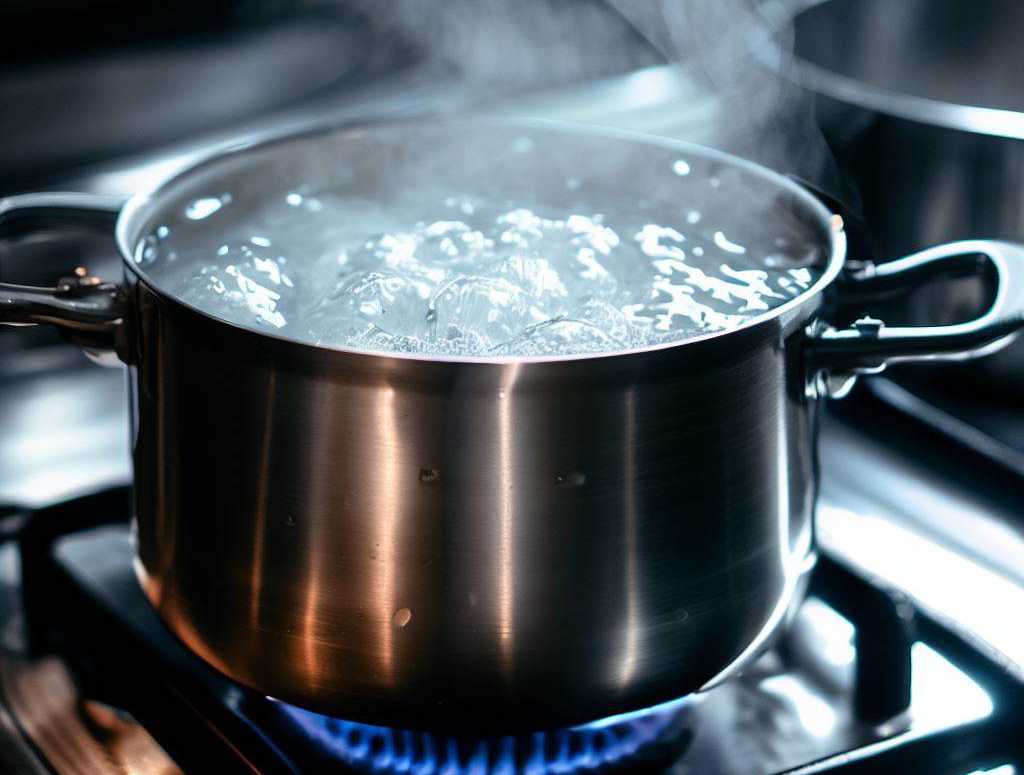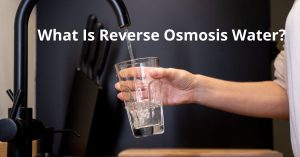Boiling water will not remove fluoride. Boiling water for prolonged periods will kill bacteria and reduce the chlorine levels in the water but boiling water will actually increase the levels of fluoride in the water. This is because volume of water is decreased due to steam evaporation and the fluoride concentration relative to the water volume increases.

Fluoride is found naturally in many sources, including drinking water. The claim is that it helps to protect teeth and bones by making them stronger and less susceptible to decay. But too much fluoride can be dangerous, leading to weakened bones, dental fluorosis, and other health concerns. So it’s important to understand what happens when we boil our drinking water.
Why Is Fluoride In Our Water?
There is much debate surrounding the addition of fluoride to drinking water, and I am among those who are skeptical of the purported benefits. Fluoride has been used to prevent tooth decay by applying it topically (on the surface) and there is solid evidence that supports this. However the evidence supporting tooth decay reduction by fluoridating water supplies is tenuous at best . In fact, studies have shown that there is no significant difference in tooth decay rates between communities with fluoridated water and those without it. Additionally, some studies suggest that fluoride may be linked to other health problems, such as bone fractures and thyroid dysfunction.
The Cochrane Collaboration, a respected research organization, has conducted several analyses on the benefits of fluoride in drinking water. Their findings suggest that the evidence for the effectiveness of fluoridated water in reducing tooth decay is not as strong as previously believed. The studies reviewed by the Cochrane Collaboration showed that while there was a reduction in tooth decay, the effect was modest, and the quality of evidence was low. Furthermore, the studies showed that the benefit was primarily from topical fluoride application, such as toothpaste, rather than ingestion of fluoride through water.
Given these concerns, I question why fluoride continues to be added to drinking water. It seems that there may be other factors at play, such as political pressure and industry lobbying. Until there is stronger evidence for the benefits of fluoride in drinking water, I believe that communities should have the option to decide whether or not to fluoridate their water.
Why Doesn’t Boiling Water Remove Fluoride?

Boiling water may seem like it should kill fluoride, but unfortunately this isn’t the case. Boiling water can’t rid the water of its fluoride content because the chemical compounds that make up fluoride are too stable to be broken down by heat. When heated, they just become more concentrated, so boiling water won’t reduce the amount of fluoride in the water.
This is why it’s important to use a fluoride water filter your drinking water if you want to get rid of any fluoride. There are a number of filters on the market that are designed specifically for removing fluoride from drinking water. While boiling your water won’t kill off fluoride, these filters can help you get rid of any unwanted chemicals in your drinking supply. By using a filter, you can rest assured that you’re getting clean and safe drinking water free from any harmful toxins or contaminants.
Our Final Thoughts
We’ve discussed why fluoride is in our water, and why boiling it doesn’t remove it like some people think. While boiling water can be effective in removing many contaminants from drinking water, fluoride isn’t one of them. This means that even if you boil your water, you’ll still need to use a water filter that removes fluoride if you want to remove the fluoride from your drinking water.
While it’s understandable that some people may be concerned about consuming too much fluoride, there are much more effective ways of reducing your exposure to it than boiling your water. Using a certified filter with the right type of media is the most reliable way to ensure that any excess fluoride gets removed from your drinking water.




